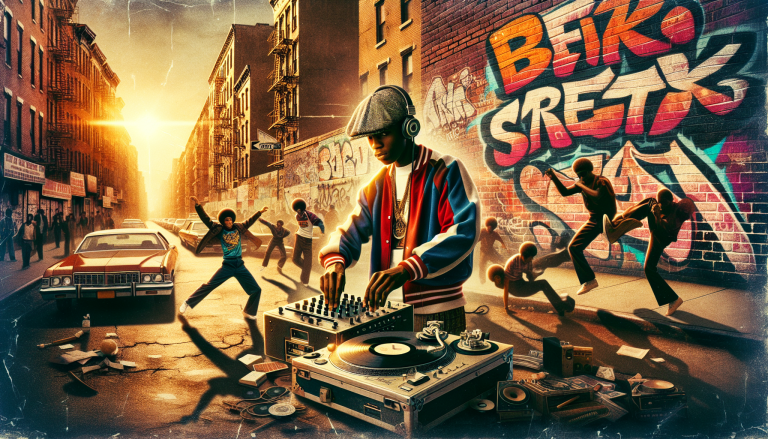The Rhythmic Revolution: Exploring the Electrifying World of Hip-Hop
From Street Corners to Global Phenomenon: The Incredible Journey of Hip-Hop
Hip-hop isn’t just a music genre – it’s a cultural tsunami that transformed American music and global youth culture forever. Born in the gritty streets of the Bronx during the early 1970s, this explosive art form emerged as a powerful voice for marginalized communities, turning raw urban experiences into a groundbreaking musical movement that would reshape entertainment, fashion, and social dialogue.
The Birth of a Cultural Earthquake
The origins of hip-hop can be traced back to block parties in predominantly African American and Latino neighborhoods of New York City. DJ Kool Herc is widely credited as the foundational architect, introducing innovative turntable techniques that would become fundamental to the genre. By isolating and extending instrumental breaks in funk and soul records, he created a revolutionary sound that invited dancers to showcase their most impressive moves.
What started as local entertainment quickly evolved into a sophisticated musical language. MCs (masters of ceremonies) began talking over these beats, developing rhythmic spoken-word performances that would ultimately become rap. The four core elements of hip-hop – DJing, MCing, breakdancing, and graffiti art – represented a holistic cultural expression that went far beyond traditional music.
Musical Innovation and Social Commentary
Hip-hop rapidly became more than entertainment; it was a profound vehicle for social commentary. Artists like Grandmaster Flash and the Furious Five’s groundbreaking track “The Message” exposed harsh urban realities, speaking directly to experiences of poverty, racism, and systemic inequality. Their lyrics weren’t just songs – they were powerful narratives of survival and resistance.

The genre’s evolution saw remarkable diversification. From the conscious rap of Public Enemy to the street poetry of Nas, from the party anthems of Run-DMC to the introspective storytelling of Tupac Shakur, hip-hop demonstrated remarkable versatility. Each artist brought unique perspectives, transforming personal experiences into universal narratives.
Global Impact and Cultural Transformation
By the 1990s and early 2000s, hip-hop had transcended its local origins, becoming a global cultural force. Artists like Jay-Z, Eminem, and Kanye West didn’t just create music – they built multimedia empires that influenced fashion, language, and entrepreneurial culture. Hip-hop became a powerful economic and cultural export, connecting youth across continents through shared rhythms and attitudes.
The genre’s influence extended far beyond music. Hip-hop fashion, language, and attitude permeated mainstream culture, challenging traditional artistic and social boundaries. Baggy jeans, snapback caps, and unique linguistic expressions became global phenomena, demonstrating hip-hop’s transformative power.
Technological Evolution and Modern Landscape
Digital technology dramatically reshaped hip-hop’s creation and distribution. Platforms like SoundCloud and YouTube democratized music production, allowing independent artists to reach global audiences without traditional record label support. Artists like Chance the Rapper exemplified this new model, building careers through digital innovation and direct fan engagement.
Contemporary hip-hop continues to evolve, incorporating elements from trap, electronic, and international musical traditions. Artists like Kendrick Lamar have elevated the genre to high art, winning Pulitzer Prizes and demonstrating hip-hop’s intellectual and artistic depth.
Cultural Significance and Ongoing Legacy
Hip-hop remains a powerful medium for social change. From Black Lives Matter movements to discussions about economic inequality, the genre continues to provide a critical platform for marginalized voices. Its ability to translate complex social experiences into compelling musical narratives remains unparalleled.
As legendary hip-hop artist Nas once said, “Hip-hop is the language of the streets.” This statement captures the genre’s essence – a dynamic, ever-changing form of expression that speaks truth to power while celebrating human creativity and resilience.
The journey of hip-hop represents one of the most remarkable cultural transformations in modern history. From humble beginnings in the Bronx to a global cultural phenomenon, it has consistently demonstrated music’s power to transcend boundaries, challenge narratives, and inspire generations.
Today, hip-hop stands not just as a musical genre, but as a global cultural movement – a testament to creativity, resilience, and the transformative power of artistic expression. Its beats continue to pulse through urban landscapes worldwide, telling stories of struggle, triumph, and endless possibility.